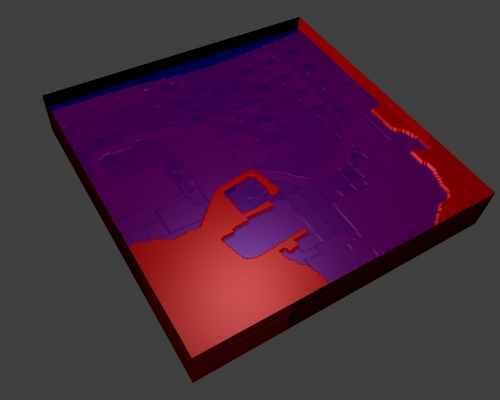







From SPHYSICS
| Line 7: | Line 7: | ||
|} | |} | ||
| − | '''Arno Mayrhofer''' started working with SPHysics during his ERASMUS year at the University College Cork in Ireland. As part of a final year project, supervised by Dr. Gareth Thomas, he was investigating different types of wave power generators. Due to limiations inherent in SPHysicsGen at that time he implemented a programm called MyGeo. It allowed him to create arbitrary geometries in 2-D SPHysics. His work, including the paper and the code, can be found at [http://sci.amconception.de http://sci.amconception.de]. | + | '''Arno Mayrhofer''' started working with SPHysics during his ERASMUS year at the University College Cork in Ireland. As part of a final year project, supervised by Dr. Gareth Thomas, he was investigating different types of wave power generators. Due to limiations inherent in SPHysicsGen at that time he implemented a programm called MyGeo. It allowed him to create arbitrary geometries in 2-D SPHysics. His work, including the paper and the code, can be found at '''[http://sci.amconception.de http://sci.amconception.de]'''. |
During an invited stay at the University of Vigo he started working on advanced preprocessing tools for 3-D SPHysics. Utilising Blender ([http://www.blender.org http://www.blender.org]) and Paraview he created a way of generating arbitrary complex geometries which is not only much more user friendly then his first work but also more powerful. All Blender generated meshes can be exported to SPHysics via a Python script that can be executed by just a single click. Due to the wide range of import formats in Blender it will also be possible to use many design input formats such as Autodesk (.dxf), 3D Studio (.3ds), Lightwave (.lwo), Milkshape3D (.ms3d) and many others. This will complement the SPHysics code and make the programm attractive to engineers to tackle real life problems. | During an invited stay at the University of Vigo he started working on advanced preprocessing tools for 3-D SPHysics. Utilising Blender ([http://www.blender.org http://www.blender.org]) and Paraview he created a way of generating arbitrary complex geometries which is not only much more user friendly then his first work but also more powerful. All Blender generated meshes can be exported to SPHysics via a Python script that can be executed by just a single click. Due to the wide range of import formats in Blender it will also be possible to use many design input formats such as Autodesk (.dxf), 3D Studio (.3ds), Lightwave (.lwo), Milkshape3D (.ms3d) and many others. This will complement the SPHysics code and make the programm attractive to engineers to tackle real life problems. | ||
Revision as of 18:13, 18 September 2009
Have you used SPHysics and developed a new add-on or development that you would like to share with other users? This page is a list of how add-ons for SPHysics.
Advanced Pre-Processing: Arno Mayrhofer

|
Arno Mayrhofer started working with SPHysics during his ERASMUS year at the University College Cork in Ireland. As part of a final year project, supervised by Dr. Gareth Thomas, he was investigating different types of wave power generators. Due to limiations inherent in SPHysicsGen at that time he implemented a programm called MyGeo. It allowed him to create arbitrary geometries in 2-D SPHysics. His work, including the paper and the code, can be found at http://sci.amconception.de.
During an invited stay at the University of Vigo he started working on advanced preprocessing tools for 3-D SPHysics. Utilising Blender (http://www.blender.org) and Paraview he created a way of generating arbitrary complex geometries which is not only much more user friendly then his first work but also more powerful. All Blender generated meshes can be exported to SPHysics via a Python script that can be executed by just a single click. Due to the wide range of import formats in Blender it will also be possible to use many design input formats such as Autodesk (.dxf), 3D Studio (.3ds), Lightwave (.lwo), Milkshape3D (.ms3d) and many others. This will complement the SPHysics code and make the programm attractive to engineers to tackle real life problems.
The code is still under development and will be included in a future version of SPHysics (expected summer 2010).
